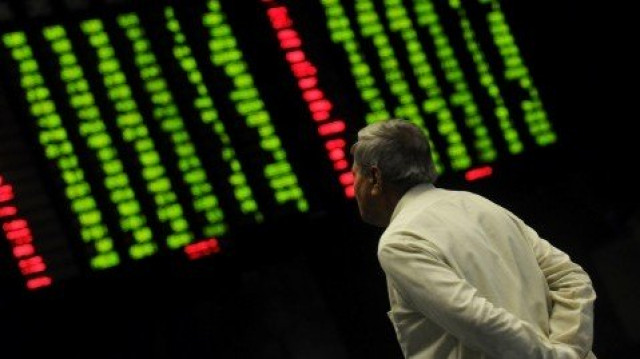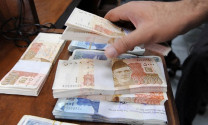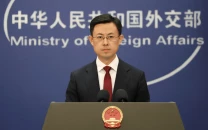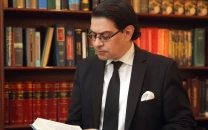Securities fraud: BMA Capital fined for front-running
SECP levies Rs50m fine on broker for improper trading in shares of Bata Pakistan.

BMA earned Rs46 million by first buying shares from NBP for its own proprietary account and then selling them at a higher price to Bafin. PHOTO: (AFP)
BMA Capital, one of the most respected investment banks in the country, has been fined the maximum Rs50 million by the Securities and Exchanges Commission of Pakistan, for front-running one of its foreign clients.
According to documents posted on the SECP website on Tuesday, BMA Capital bought 578,000 shares of Bata Pakistan at Rs920 per share from National Bank of Pakistan on August 24, 2012 in a negotiated, off-market block transaction and then on August 29 sold 587,500 shares in another negotiated, off-market transaction at Rs1,000 per share to Bafin (Nederland) BV, the holding company for many of Bata’s global subsidiaries.
Front-running occurs when a brokerage firm, after learning of a client’s order to buy shares, first buys shares on their own account and then – after the share price has gone up – buys shares on behalf of the client, giving their client a worse price than they could have gotten had the broker simply executed the trade immediately.
Hence the key question that the SECP tried to answer was when exactly BMA got the order to buy the shares. At a hearing held at the SECP offices in Karachi on November 12 (literally across the street from BMA’s headquarters), CEO Moazzam Malik and a lawyer representing the firm presented a letter sent by Bafin, stating that they placed their order on August 27.

“We consider BMA to be a highly professional company and look forward to doing further business with you in the near future,” wrote Tim Jude, vice president for finance at Bata Brands headquarters in Switzerland.
That e-mail would appear to put BMA in the clear: they bought Bata Pakistan shares before Bafin placed an order to buy them. BMA’s lawyers have insisted that the firm was engaged in proprietary trading when it bought the shares from NBP and also when it sold them to Bafin, and did not act as a broker in either trade.
But when the SECP followed up with Jude, they found out a little something more: “We have been discussing with BMA for quite some time [the] opportunity for acquiring shares. However, it was only around August 27, if I recall correctly, that a firm opportunity arose for Bafin to acquire some shares,” wrote Jude on December 4 in an e-mail response to the SECP’s inquiries.
And therein lies the dispute. Technically, BMA bought Bata shares before Bafin placed its order. However, as Jude’s second e-mail suggests, BMA clearly knew that a large order for Bata shares was forthcoming from Bafin. The SECP contends that, as a registered brokerage house, it was BMA’s responsibility to act only as an intermediary between NBP and Bafin, collecting only a commission.
Instead, BMA managed to earn a Rs46 million profit from the trade by first buying the shares from NBP for its own proprietary account and then selling them to Bafin for a higher price. That profit would be more than wiped away by the Rs50 million fine levied on BMA by the SECP.
There is also the inconsistency in BMA’s own defence arguments. In the first letter sent by the firm to the regulator on October 3, written by the CEO himself, BMA admitted that they were under “instruction from Bafin to try to reduce the price of the Bata shares we buy from National Bank to the best of our ability.” That suggests that the brokerage was acting on behalf of its client even in the first trade. In subsequent letters, drafted by BMA’s lawyers, the company claimed that its initial trade was a purely proprietary one.
BMA denies all wrongdoing. “We have always acted in accordance with the law,” Moazzam Malik told The Express Tribune. “BMA firmly believes that it has not violated any law or code of conduct set forth in the Brokers Rules and has decided to appeal the decision passed by the SECP,” Malik further said.
The firm may have a case: the line between proprietary trading and brokerage services when it comes to illiquid securities is a fine one, and one that even US regulators have struggled to define.
Published in The Express Tribune, February 21st, 2013.
Like Business on Facebook to stay informed and join in the conversation.



















COMMENTS
Comments are moderated and generally will be posted if they are on-topic and not abusive.
For more information, please see our Comments FAQ